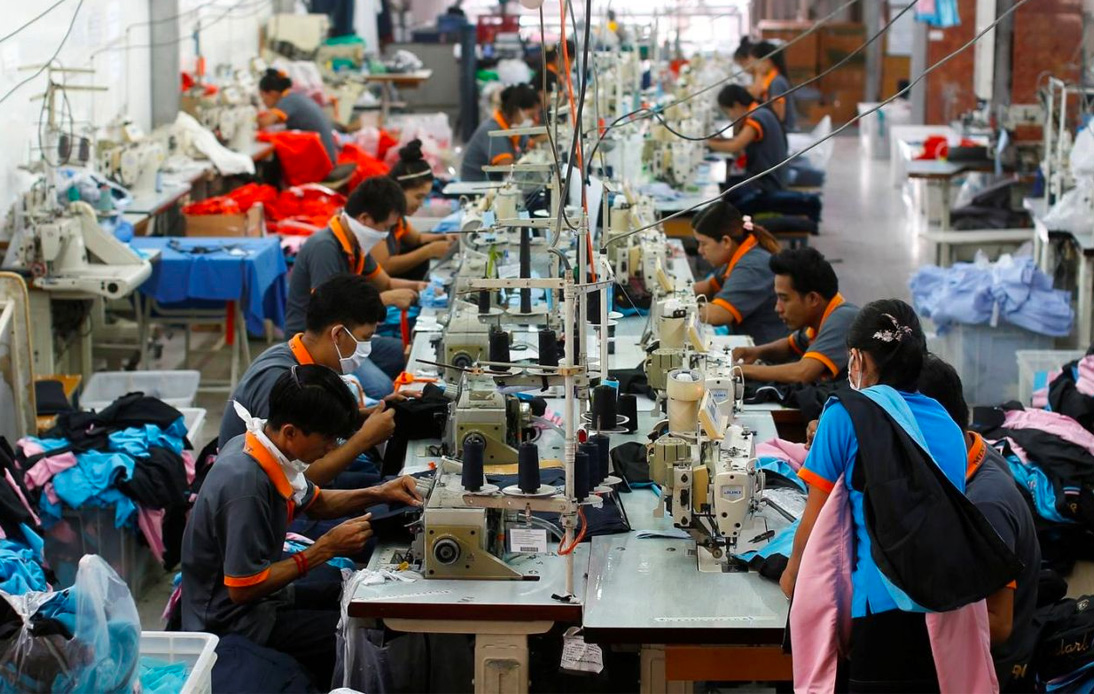
From January 1, 2024, Thailand will implement an increase in the nationwide daily minimum wage for workers. The updated wage rates will differ across each province, with amounts spanning from 330 to 370 baht, as reported by the labour ministry.
A tripartite committee consisting of representatives from the business community, labuor groups, and the government recently agreed on these new wage rates on a Friday.
Presently, the daily minimum wage fluctuates between 328 and 354 baht. The forthcoming increment will vary from 2 to 16 baht, averaging an increase of 2.4%.
In Phuket, the maximum daily wage is set at 370 baht, an increase from the current 354 baht. Conversely, the lowest wage of 330 baht, rising from 328 baht, will be in Narathiwat, Pattani, and Yala.
In Bangkok and other nearby provinces including Nakhon Pathom, Nonthaburi, Pathum Thani, Samut Prakan, and Samut Sakhon, the new daily wage is established at 363 baht, which is a 10 baht increase from the existing 353 baht.
Pairoj Chotikasathien, the Labour Ministry’s permanent secretary, stated post a five-hour committee meeting on Friday, that the wage increases will be submitted to the cabinet for acknowledgment and then announced in the Royal Gazette.
The wage adjustments will officially commence from January 1. According to Mr Pairoj, this wage revision aims to provide workers with a standard of living that aligns with current economic conditions and is sustainable for businesses.
He elaborated that Phuket’s daily wage of 370 baht was selected due to its unique situation, with minimal agricultural activity and a predominant focus on the tourism sector, coupled with a higher cost of living compared to other provinces.
The new daily wage, however, falls short of the promise made by the Pheu Thai Party in its election campaign earlier in the year.
This wage adjustment has garnered significant public interest, especially after the ruling Pheu Thai Party pledged to elevate the minimum wage to 400 baht per day, a promise made during the last general election.
Labour Minister Phiphat Ratchakitprakarn, last month, tempered expectations by suggesting that wage increases would likely be around 2%, in line with the current low inflation rate.
The previous wage rise, a 5% increase, was sanctioned by the tripartite committee in October of the preceding year.
Pheu Thai’s proposal for a substantial wage increase had sparked concern among businesses worried about escalating operational costs and potential impacts on the country’s competitiveness for investors during a period of economic underperformance.
Mr Pairoj indicated a further wage increase in 2024, with the committee aiming to reach the 400 baht mark.
Following the November 27 meeting, Mr Phiphat disclosed that a sub-committee under the main wage committee had presented proposed wage adjustments for each province to a review panel. He noted that five provinces, including Phuket, initially did not seek wage increases.
He criticized this as unfair to workers, arguing that wages should rise in every province, reflecting their economic conditions.
He also suggested that provinces where the government is boosting the economy should receive higher wage increases. He expressed optimism about achieving the 400 baht daily wage in economically robust provinces, in accordance with government policy.
He anticipates the daily wage could further increase to 600 baht by 2027 if the upcoming year starts well.
Atthayuth Leeyawanich, head of the Employers Confederation of Consumer Goods and Services, regarded the new wage rates as fair and acceptable to employers, having undergone academic panel scrutiny before reaching the tripartite committee.
He noted that the 2 baht increase would apply to only three provinces, with most experiencing rises of 8 to 10 baht.




















